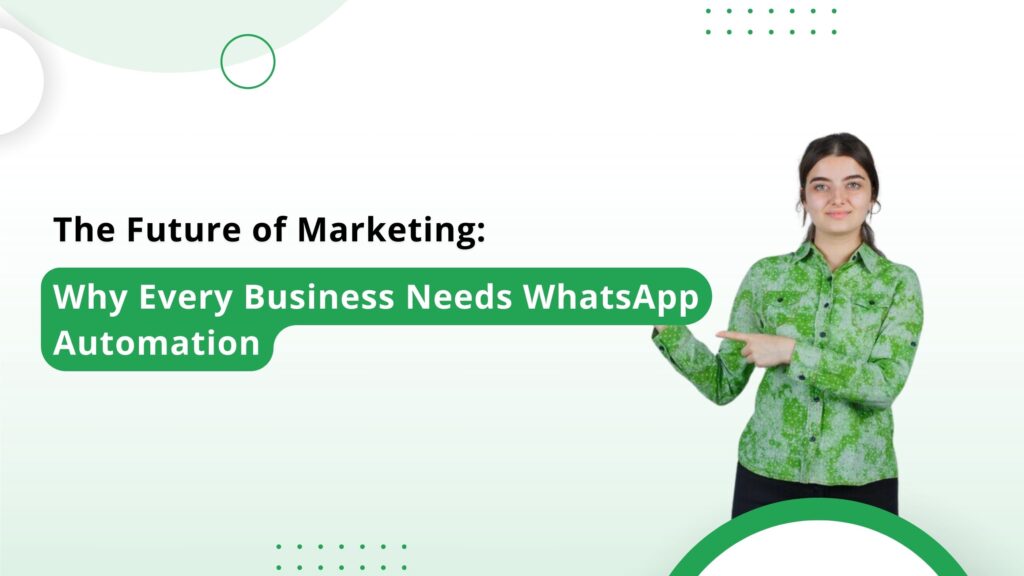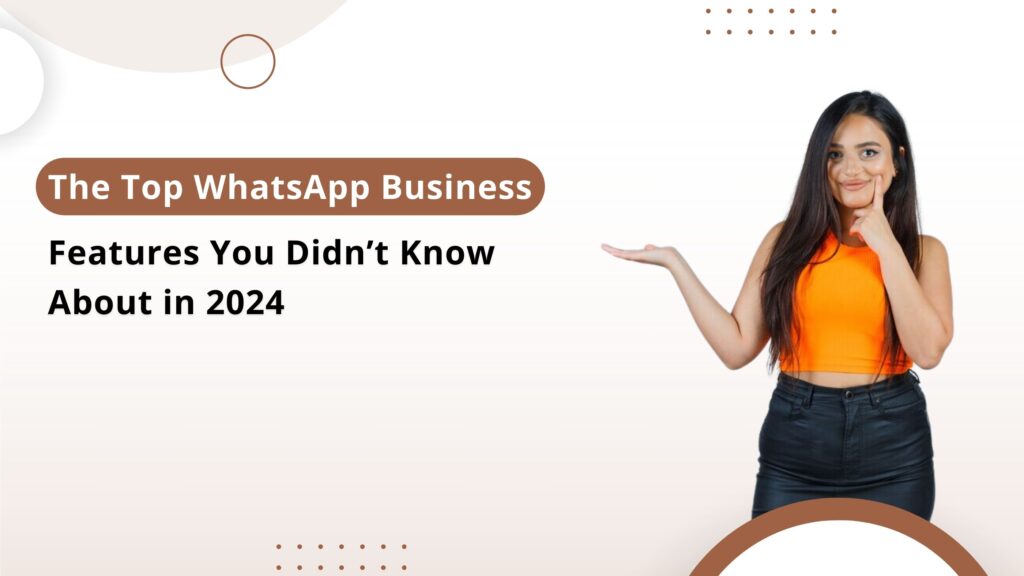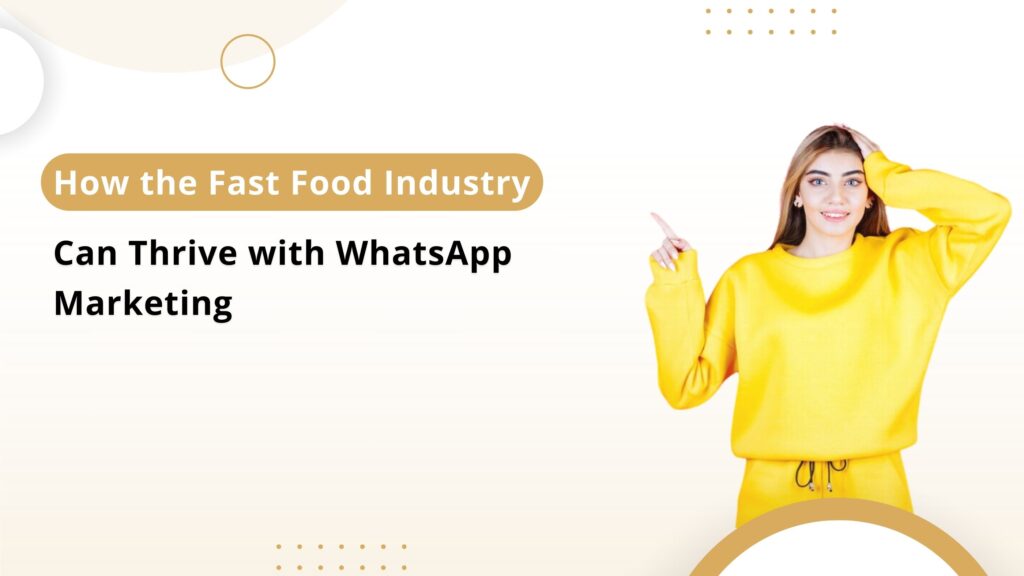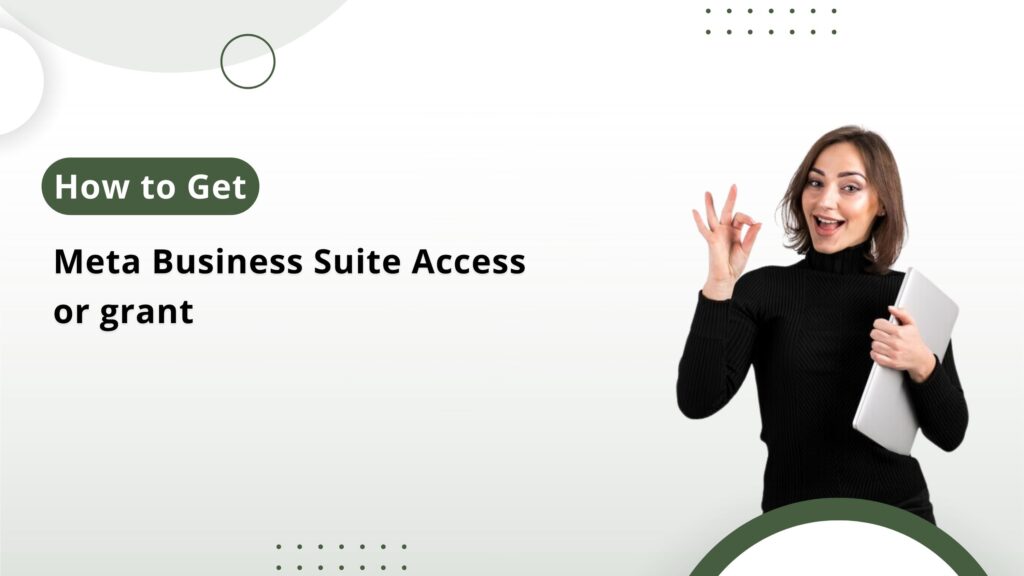
In today’s fast-paced digital world, businesses must adopt innovative technologies to stay ahead of the competition. Among these, WhatsApp automation is rapidly emerging as a game-changer in the marketing landscape.
With over 2.7 billion active users worldwide, WhatsApp provides an unparalleled platform for businesses to connect with their audience.
This article explores why every business should embrace WhatsApp automation and how it can redefine customer engagement, enhance operations, and drive growth.
Why WhatsApp Automation is the Future of Marketing
1. Unmatched Customer Reach
WhatsApp is the most popular messaging app globally, with penetration across diverse demographics. Businesses can leverage this platform to reach customers where they are most active.
Unlike traditional marketing channels, WhatsApp marketing strategies offer a personal and direct line of communication.
Example: A clothing brand sends a WhatsApp marketing message to its customers announcing a flash sale. The message garners an 80% open rate within an hour, compared to a 20% open rate for emails.
2. Enhanced Customer Engagement
Automated WhatsApp messages ensure timely and personalized interactions with customers.
Whether it’s sending order updates, resolving queries, or offering product recommendations, personalized marketing through WhatsApp makes every conversation relevant and meaningful.
Example: An e-commerce store integrates WhatsApp automation tools to notify customers about abandoned carts.
A friendly automated message offers a 10% discount to complete the purchase, recovering 30% of lost sales.
3. Cost-Effective Marketing
Traditional advertising methods, such as TV or print, are costly and often have limited tracking capabilities.
WhatsApp marketing automation allows businesses to run campaigns with minimal investment and precise targeting.
Example: A local restaurant uses WhatsApp Business API to send weekly menus and special offers.
The campaign costs less than $50 monthly but generates 20% more reservations compared to their previous email campaigns.
4. 24/7 Customer Support with Chatbots
Integrating a WhatsApp chatbot for businesses ensures that customer queries are addressed instantly, even outside business hours. This enhances customer satisfaction and reduces operational costs.
Example: An online travel agency uses an WhatsApp chatbot to handle common queries like flight bookings, cancellations, and itinerary updates.
Over 70% of queries are resolved without human intervention, freeing up their support team for complex issues.
Key Features of WhatsApp Automation
Message Personalization: Tailor messages based on customer preferences, purchase history, and behavior.
Broadcasting: Send promotional offers or updates to a large audience without compromising on personalization.
Drip Campaigns: Schedule a series of WhatsApp drip campaigns to nurture leads.
Analytics: Track delivery, open rates, and click-through rates for continuous improvement.
Industries Leading the WhatsApp Automation Revolution
1. E-commerce
From order confirmations to product recommendations, e-commerce brands use WhatsApp marketing examples to create a personalized shopping experience.
Example: A beauty brand sends automated reminders to replenish skincare products purchased by customers, increasing repeat purchases by 40%.
2. Healthcare
Hospitals and clinics leverage WhatsApp automation for appointment scheduling, reminders, and even sharing medical reports securely.
3. Education
Educational institutions use WhatsApp marketing strategies for fee reminders, online class updates, and sharing study materials.
4. Real Estate
Agents use WhatsApp Business API to provide instant property listings, schedule site visits, and follow up with potential buyers
Steps to Implement WhatsApp Automation for Your Business
Set Up WhatsApp Business API: The API allows advanced automation features such as message templates and chatbot integration.
Define Your Use Cases: Identify areas where automation can make the most impact (e.g., WhatsApp abandoned cart recovery, lead generation, customer support).
Choose the Right Platform: Use tools like MagicXBot to seamlessly integrate WhatsApp automation tools.
Develop Chatbot Flows: Create conversational flows to handle FAQs, guide users, or recommend products.
Analyze and Optimize: Regularly review analytics to refine your WhatsApp marketing strategy for maximum ROI.
The Future: Beyond Marketing
WhatsApp automation aren’t just about marketing; they’re becoming comprehensive business solutions. From HR notifications to supply chain updates, the possibilities are endless.





